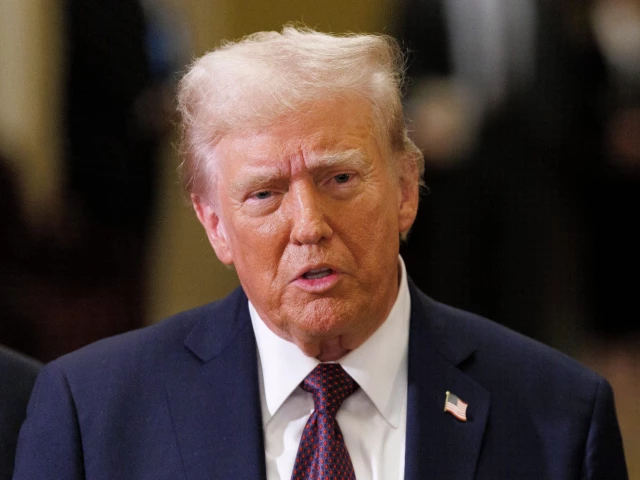Unions, employers sue to block Trump’s $100,000 H-1B visa fee plan
Coalition argues new order unlawfully overrides federal visa laws, risks harming US workforce needs

A coalition of unions, employers and religious groups filed a lawsuit seeking to block President Donald Trump's bid to impose a $100,000 fee on new H-1B visas for highly-skilled foreign workers.
The lawsuit filed in federal court in San Francisco is the first to challenge a proclamation Trump issued two weeks ago announcing the fee as the Republican president moves to further restrict immigration to the United States.
Plaintiffs include the United Auto Workers union, the American Association of University Professors, a nurse recruitment agency and several religious organizations. They argued that Trump's power to restrict the entry of certain foreign nationals does not allow him to override the law that created the H-1B visa program.
White House spokeswoman Abigail Jackson, in a statement, said Trump's administration engaged in lawful actions "discouraging companies from spamming the system and driving down American wages, while providing certainty to employers who need to bring the best talent from overseas."
The program allows US employers to hire foreign workers in specialty fields, and technology companies in particular rely heavily on workers who receive H-1B visas.
Critics of H-1Bs and other work visa programs say they are often used to replace American workers with cheaper foreign labor. But business groups and major companies have said H-1Bs are a critical means to address a shortage of qualified American workers.
Employers who sponsor H-1B workers currently typically pay between $2,000 and $5,000 in fees, depending on the size of the company and other factors. Trump's order bars new H-1B recipients from entering the United States unless the employer sponsoring their visa has made an additional $100,000 payment. The administration has said the order does not apply to people who already hold H-1B visas or those who submitted applications before September 21.
Trump, in his unprecedented order, invoked his power under federal immigration law to restrict the entry of certain foreign nationals who would be detrimental to the interests of the United States.
He said that high numbers of lower-wage workers in the H-1B program have undercut its integrity and that the program threatens national security, including by discouraging Americans from pursuing careers in science and technology. He said the "large-scale replacement of American workers" through the H-1B program threatens the country's economic and national security.



















COMMENTS
Comments are moderated and generally will be posted if they are on-topic and not abusive.
For more information, please see our Comments FAQ